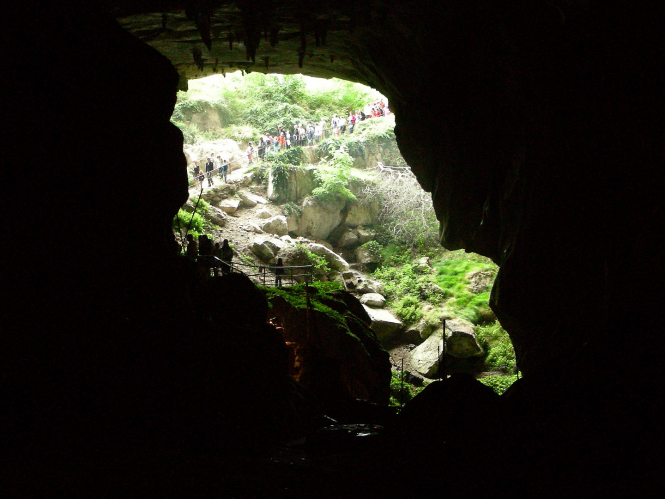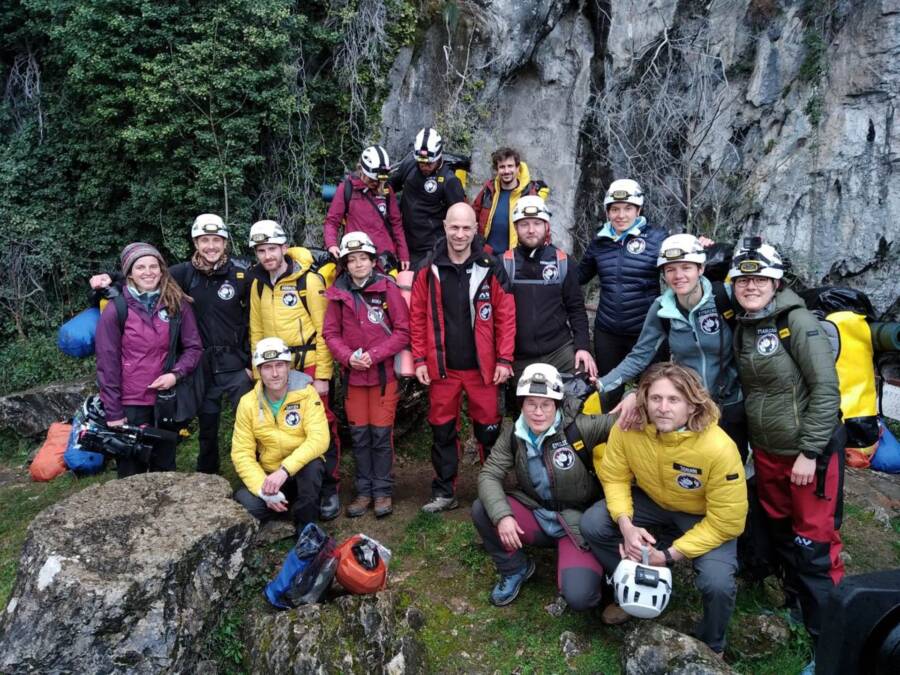
A group of 15 volunteers has shut themselves in a French cave as part of the ‘Deep Time’ experiment.
On March 14th, a group of 15 volunteers made their way down into the Lombrives cave in Ariège, France. Aged between 27 to 50 years, the group comprises primary school teachers, scientists, and even a jeweller. This diverse group has agreed to spend 40 days underground as part of the ‘deep time’ experiment, the first of its kind.
Devised by the explorer and writer Christian Clot, the social experiment aims to investigate the effects of long-term isolation on the human body with no notion of time. Additionally, the experiment will help scientists gauge how humans learn to live together with strangers in unknown territory, using the resources around them.
This experiment is a world first. Until now, all missions of this type focused on the study of the physiological rhythms of the body, but never on the impact of this type of temporal rupture on the cognitive and emotional functions of the human being.
Professor Etienne Koechlin, a neuroscientist at the École Normale Supérieure in Paris
Prior to the experiment, all volunteers underwent a psychiatric and physical evaluation. Researchers carefully selected the group based on their professions to come up with a team capable of surviving together. The group will spend 40 days underground with no phones, watches, or access to natural light. Thus, without a way of telling time. Their only source of light will be a pedal-driven dynamo that can create electricity. They have received enough food and water supplies to last them the duration of the experiment.

Source: AFP/Getty Images
‘The Greatest Disorientation’
According to Clot, losing time is ‘the greatest disorientation’. Through Deep Time he hopes to investigate how the cognitive system perceives time, and how it changes in different environments. Therefore, each volunteer has a sensor attached to them. The sensors will convey information to a team of 30 scientists located outside the cave. Cognition, epigenetics, sleep rhythms, and psychology are just some of the disciplines the experts aim to investigate. Additionally, the researchers also plan to study the long-term effects of the conditions.
Clad in sensors, with the most up-to-date research tools at their disposal, participants will undertake a comprehensive and rigorous study protocol to assess how their brains and bodies manage and generate a new time synchronization, space and society.
Experiment Organizers.
The findings of the experiment can likely provide humans with valuable insight into the human mind. Especially in conditions where people face long-term isolation, such as a pandemic, space travel, and even submarine missions. However, Colt has received quiet a bit of criticism from experts for his lack of scientific background.
The group is set to come aground on 22nd April, hopefully with their minds and bodies intact.
Further information about the experiment is available on the Deep Time website.



